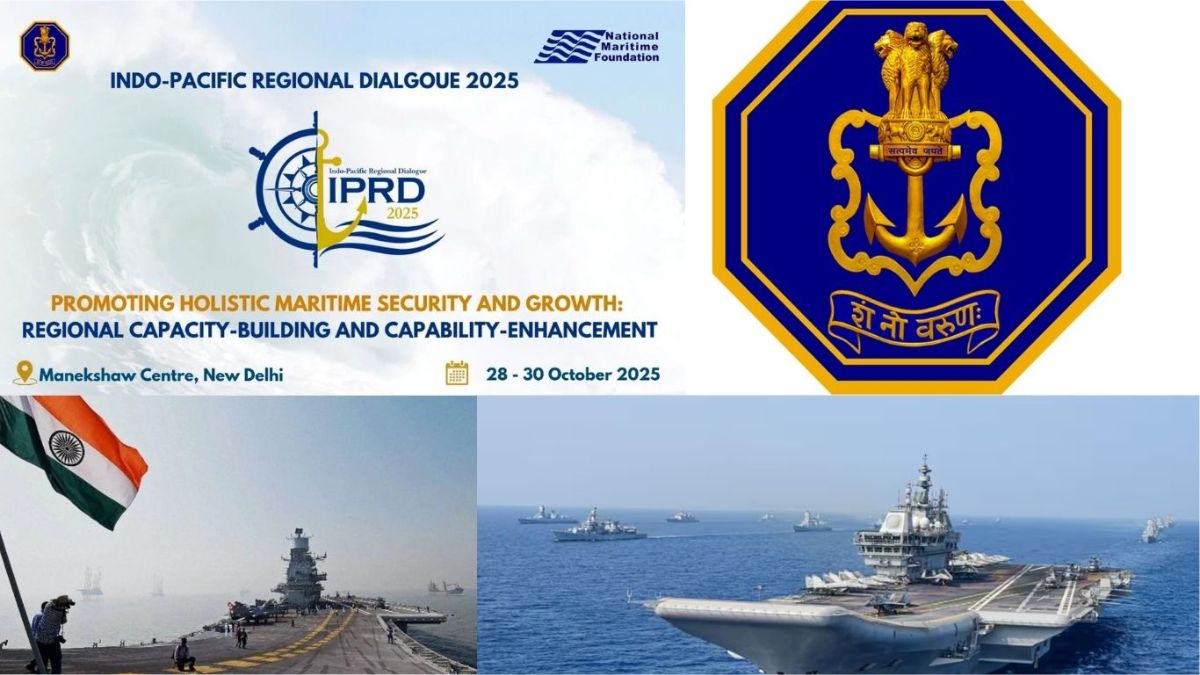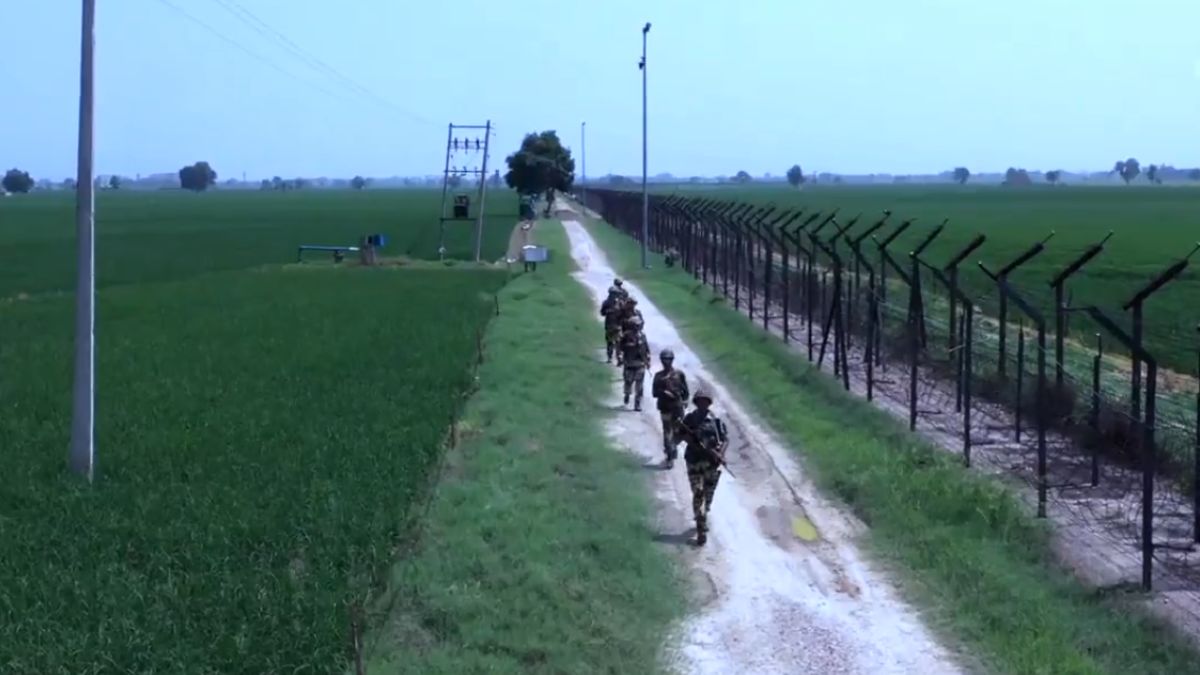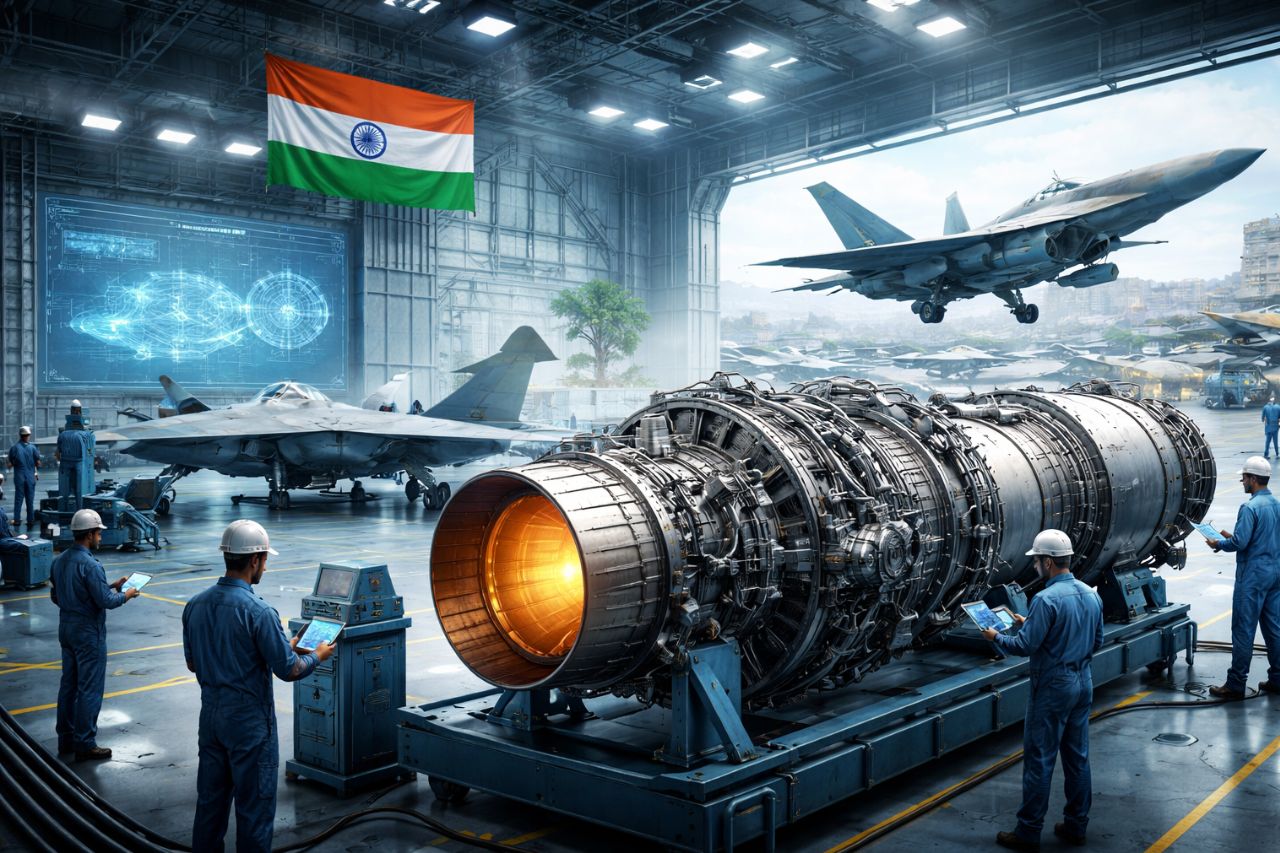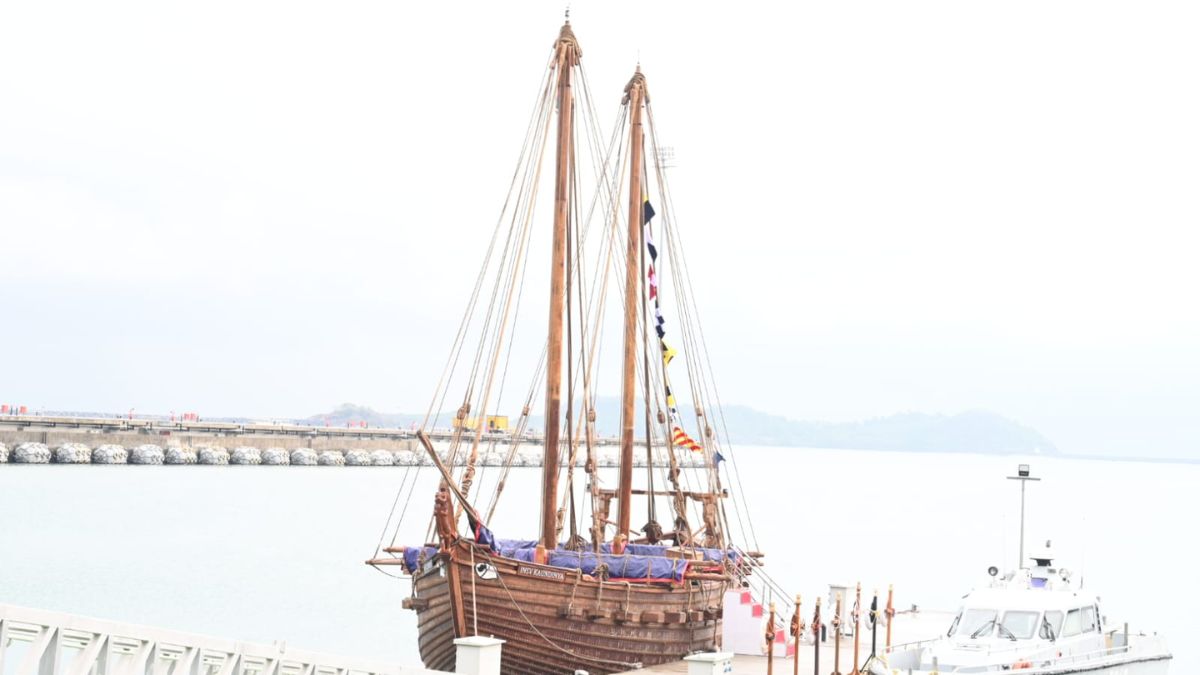IPRD 2025: Indian Navy Opens Seventh Indo-Pacific Regional Dialogue In New Delhi

The Indian Navy inaugurates the seventh Indo-Pacific Regional Dialogue (IPRD 2025) in New Delhi, uniting maritime leaders and policymakers to advance cooperation, capacity-building, and holistic security across the Indo-Pacific region.
The seventh edition of the Indo-Pacific Regional Dialogue (IPRD 2025) opened on October 28, 2025, at the Manekshaw Centre in New Delhi, bringing together senior naval leaders, policymakers, diplomats, and scholars from across the Indo-Pacific.
Held under the theme ‘Promoting Holistic Maritime Security and Growth: Regional Capacity-Building and Capability-Enhancement’, the dialogue represents the Indian Navy’s flagship international outreach, aimed at fostering shared understanding and cooperation across the world’s most strategically consequential maritime region.
The three-day conference is being organised by the Indian Navy, with the National Maritime Foundation (NMF) serving as its Knowledge Partner.
How Is the Dialogue Framing the Current Maritime Landscape?
The event commenced with an inaugural address by Admiral Karambir Singh (Retd), former Chief of the Naval Staff. He reflected on the “strategic turbulence” defining the maritime domain, driven by the resurgence of great power competition, the rise of non-state actors, and the intensification of non-traditional threats such as climate change, piracy, and illegal fishing.
Admiral Singh emphasised the need for a “cooperative maritime architecture” that would enable nations of the Indo-Pacific to pool resources and share best practices to meet evolving challenges. “No single nation can secure the seas alone,” he observed, calling for inclusive regional partnerships anchored in transparency and trust.
The opening panel featured speakers from Bangladesh, Japan, Indonesia, Singapore, and South Africa, who discussed “Cooperative Capacity-Building and Capability-Enhancement to Address the Security Impacts of Climate Change.”
The session underlined the urgency of developing a joint regional impact assessment and a unified action plan to mitigate climate-related disruptions to maritime security and livelihoods.
What Did the Chief of the Naval Staff Emphasise in His Address?
The highlight of the day was the commemorative address by Admiral Dinesh K Tripathi, Chief of the Naval Staff. He reiterated the centrality of the Indo-Pacific to India’s economic prosperity and national security, noting that “the oceans are not barriers, but bridges of opportunity.”
Admiral Tripathi outlined India’s maritime vision of MAHASAGAR — Mutual and Holistic Advancement for Security and Growth Across Regions — as the guiding framework for cooperative maritime engagement.
He stated that MAHASAGAR embodies India’s belief that sustainable maritime development and security can only be achieved through collaboration, capacity-building, and mutual growth.
During the session, Admiral Tripathi also released a book titled Future Maritime Warfare, authored by Captain KS Vikramaditya of the Indian Navy and published by the National Maritime Foundation. The book explores future trajectories in naval strategy, technology, and operational concepts.
What Were the Key Takeaways from the Interactive Sessions?
A standout feature of the opening day was “Chaupal ki Charcha”, a specially curated session designed to foster candid dialogue among senior maritime thinkers and diplomats.
The panel comprised Vice Admiral Pradeep Chauhan, Director General of the NMF; H.E. Dr Philipp Ackermann, German Ambassador to India; H.E. Mr Indra Mani Pandey, Secretary General of the Bay of Bengal Initiative for Multi-Sectoral Technical and Economic Cooperation (BIMSTEC); Vice Admiral Anne Cullere of the French Navy; and Captain Geordie Klein, the Netherlands’ Defence Attaché in New Delhi.
Their discussion underscored the importance of collaborative frameworks that transcend national boundaries, echoing the spirit of MAHASAGAR. Speakers agreed that shared maritime awareness, information exchange, and regional trust-building were critical to maintaining an open, secure, and prosperous Indo-Pacific.
The day concluded with a special address by Professor (Dr) Christian Bueger from the University of Copenhagen. Dr Bueger discussed the growing convergence between maritime governance, security, and sustainability, and subsequently launched a special edition of Maritime Affairs, the NMF’s flagship academic journal.
What Lies Ahead for IPRD 2025?
With 40 distinguished speakers from 19 countries participating, IPRD 2025 has once again reinforced its role as a premier international forum for maritime thought leadership. Over the next two days, sessions will continue to explore practical approaches to regional capacity-building, innovation, and cooperative frameworks under the evolving Indo-Pacific order.
The deliberations are expected to help chart actionable strategies for a more secure, resilient, and inclusive maritime future — a goal that lies at the heart of India’s MAHASAGAR vision.







